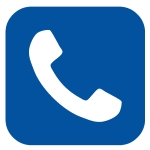911 is an easy to remember telephone number that will access all emergency services within Thunder Bay: Ambulance, Police, and Fire. You can dial 911 from any telephone, and you don't need to pay when using a public telephone.
When to call 911 |
|
You should use 911 only in an emergency. 911 gives people priority access to emergency service and should be reserved for those who really need it. Sometimes it is difficult to know whether your problem is serious enough to call 911. The following examples may help you when in determining when to call for 911 assistance:
If you have any doubts about whether you are experiencing a medical emergency, call 911. The ambulance will take you to the appropriate emergency department. |
What to expect when you call 911 |
|
When you call 911, remember to stay calm and give clear information. You will be asked whether you need police, fire, or ambulance. For medical emergencies you will be transferred to the Emergency Medical Dispatcher, who will ask you the following information:
Please remember that the Emergency Medical Dispatcher needs to ask you specific questions in a specific order to help you as quickly and effectively as possible. Remain on the lineRemain on the line to provide additional information if requested to do so by the call taker. |
What else should I do? |
|
After you have given your information to the dispatcher, the following points will help the paramedics to help you:
|
Contact Us








